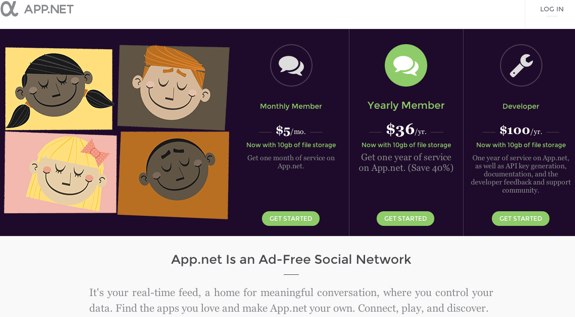Latest Gear Live Videos
The Problem with Facebook [Video]

Posted by Andru Edwards Categories: Revenue, Social Media, Social Networks,
The problem is the only way Facebook has found to make money is by treating all entities on the site as advertisers and charging them to share their content.
This business plan backfires because 1) not all entities ARE advertisers and 2) it was the content from these people, specifically friends, family, and creators that made the site worth visiting in the first place.
Now the incentives are misaligned:
- Individuals want to see great content, but they are now seeing more paid content and organically shared content which appeals to the lowest common denominator (babies, weddings, and banal memes)
- Creators want to reach fans but their posts are being throttled to force them to pay to be seen
- Brands and advertisers have to pay once to advertise their page on Facebook, and then pay again to reach the people who have already liked their page. Plus Facebook is not a place where people generally go to buy things.
Facebook stands in contrast to other social media like Twitter, YouTube, and Instagram where all content is shared with all followers.
Advertisement
Groupon CEO Andrew Mason fired due to poor quarterly results

Posted by Andru Edwards Categories: Corporate News, News, Revenue,

Yesterday, Groupon hit us with a massively disappointing first-quarter earnings report, which saw its stock tumble by over 25% after hours, and now CEO Andrew Mason is out. Someone had to take the fall, and the burden came on the shoulders of Mason, who'll be replaced in the interim by Ted Leonsis and Eric Lefkofsky while the board finds a new CEO. Mason released a letter to employees, and also made it public, admitting that he knew it would leak anyway--give it a read after the break.
Click to continue reading Groupon CEO Andrew Mason fired due to poor quarterly results
Read More  | Groupon
| Groupon
App.net introduces free accounts with an invitation system

Posted by Andru Edwards Categories: Revenue, Social Media, Social Networks, Startups,

App.net has decided to remove the cost of entry for some users, as it now allows those with paid accounts to invite up to three people to the service for free. If you're unfamiliar with App.net, it's a Twitter-like service that is free of advertising, instead allowing members to pay a $36 annual fee to be a part of it. Members own the data they put into it and don't need to give up any rights, and that includes the 10 GB cloud storage that tied to the App.net File API. Free users will have some limitation, though. For one, you'll only be able to follow a maximum of 40 other users, and instead of the aforementioned 10 GB of cloud storage, you get 500 MB instead. Lastly, paid accounts are allowed to upload files up to 100 MB in size, while free accounts have a 10 MB size restriction.
If you want to get in on App.net and don't feel like paying, hit up your paid user brethren and beg for an invite.
Read More  | App.net
| App.net
Google Launches Co-Op Search Engine Service

Posted by Andru Edwards Categories: Advertising, Design, Revenue,
 Now this is good news for those of you who run websites - Google has just launched Google Co-Op. The goal of Google Co-Op is to allow a user to create and integrate a customized version of the Google search engine into their website. You are able to specify which sites you want your Co-Op site to search, which means results will be displayed only for those sites you choose.
Now this is good news for those of you who run websites - Google has just launched Google Co-Op. The goal of Google Co-Op is to allow a user to create and integrate a customized version of the Google search engine into their website. You are able to specify which sites you want your Co-Op site to search, which means results will be displayed only for those sites you choose.
Aside from choosing which site(s) you want to include, you also have the choice of customizing the look and feel of the results page, how content in the results should be prioritized, and even if others can contribute as well.
It appears, however, that the home run here is that Google Co-Op gives the options of displaying your AdSense ads in the sidebar, providing the possibility of increased revenue. If you make a large portion of your income from Google AdSense, this becomes a no-brainer. Not only can you incorporate your AdSense into search results, but you can also ditch your current site search tool, as Google will likely do a better job.
Read More  | Google Co-Op
| Google Co-Op
Advertisement
© Gear Live Media, LLC. 2007 – User-posted content, unless source is quoted, is licensed under a Creative Commons Public Domain License. Gear Live graphics, logos, designs, page headers, button icons, videos, articles, blogs, forums, scripts and other service names are the trademarks of Gear Live Inc.










